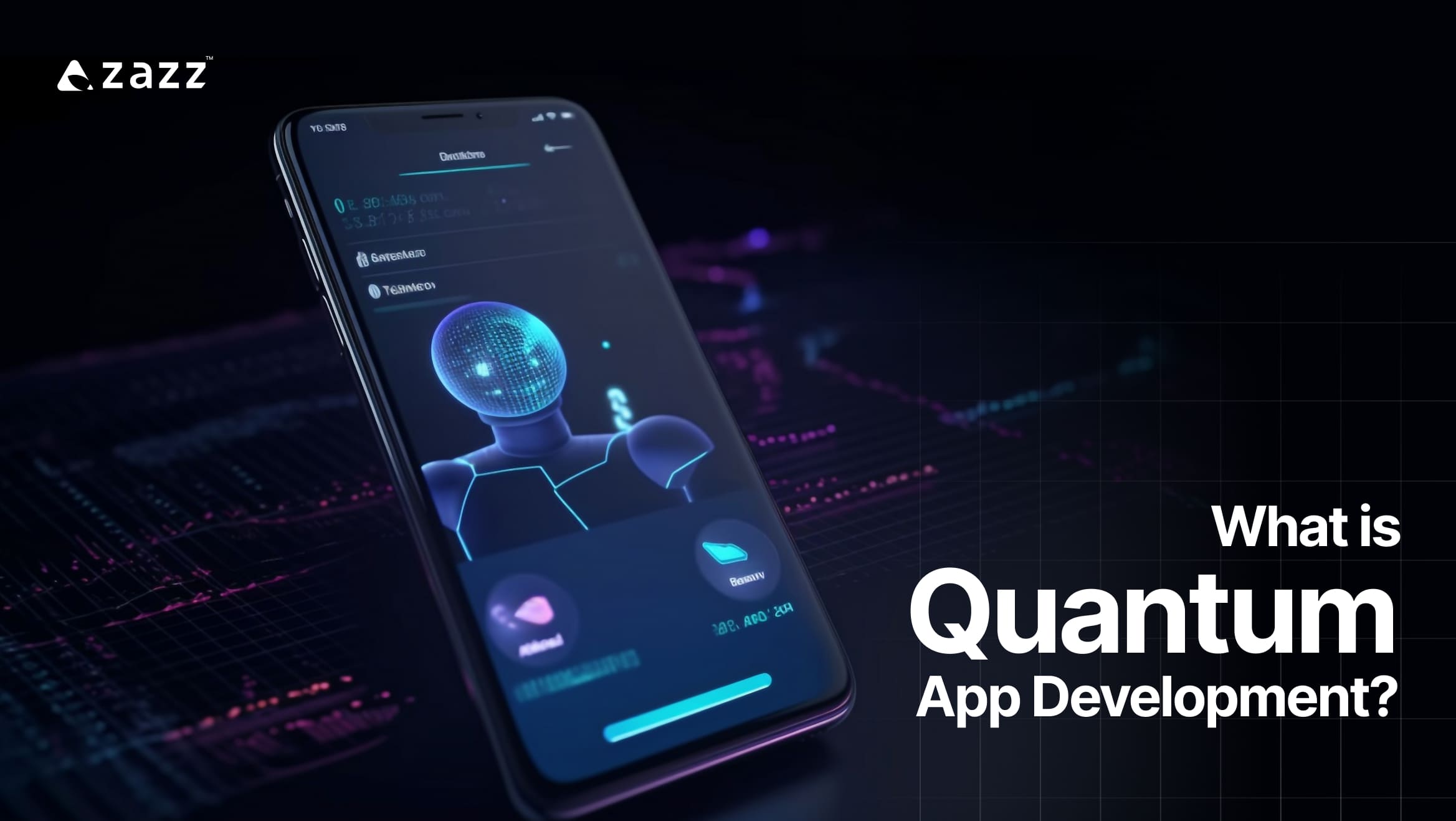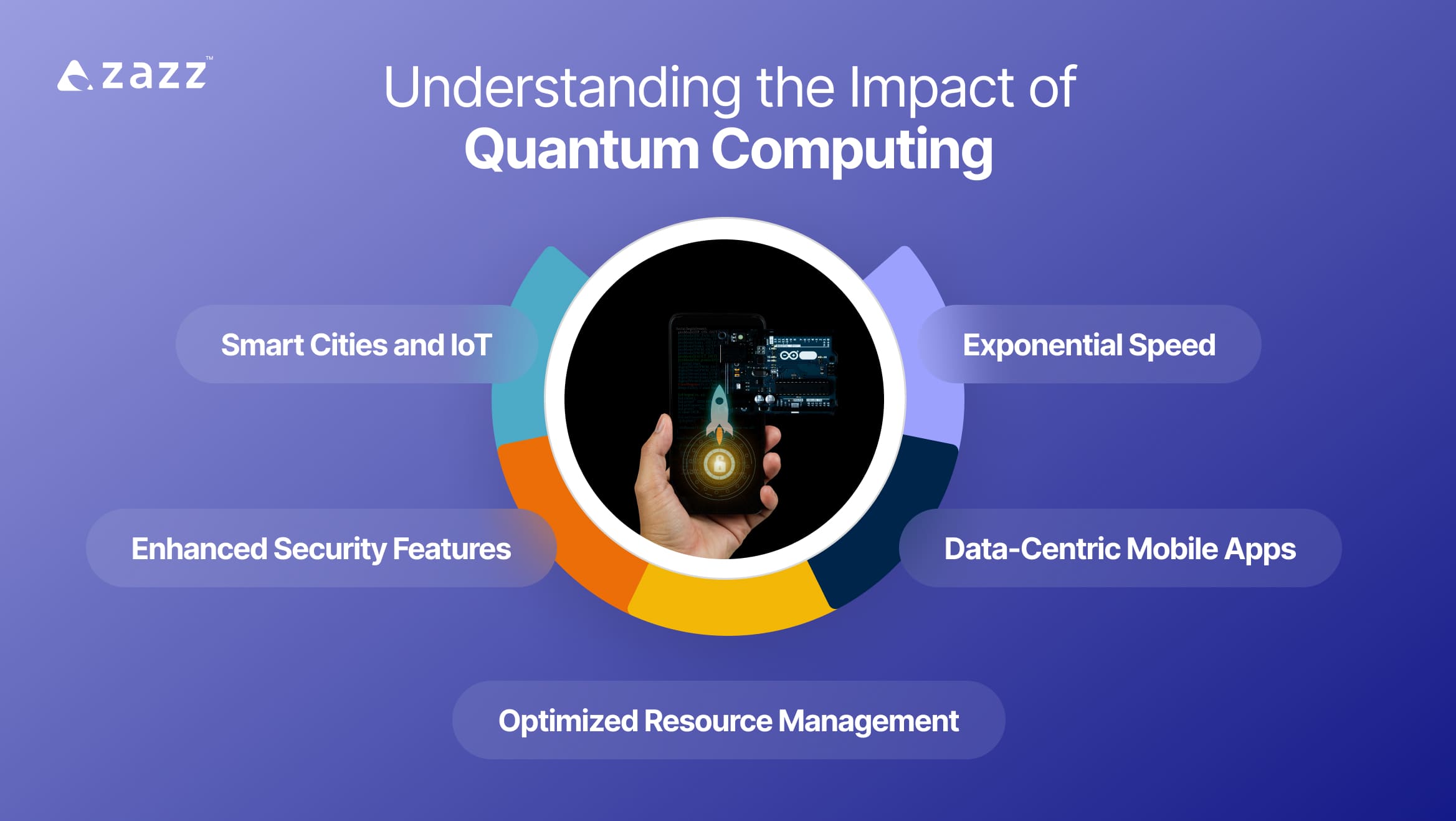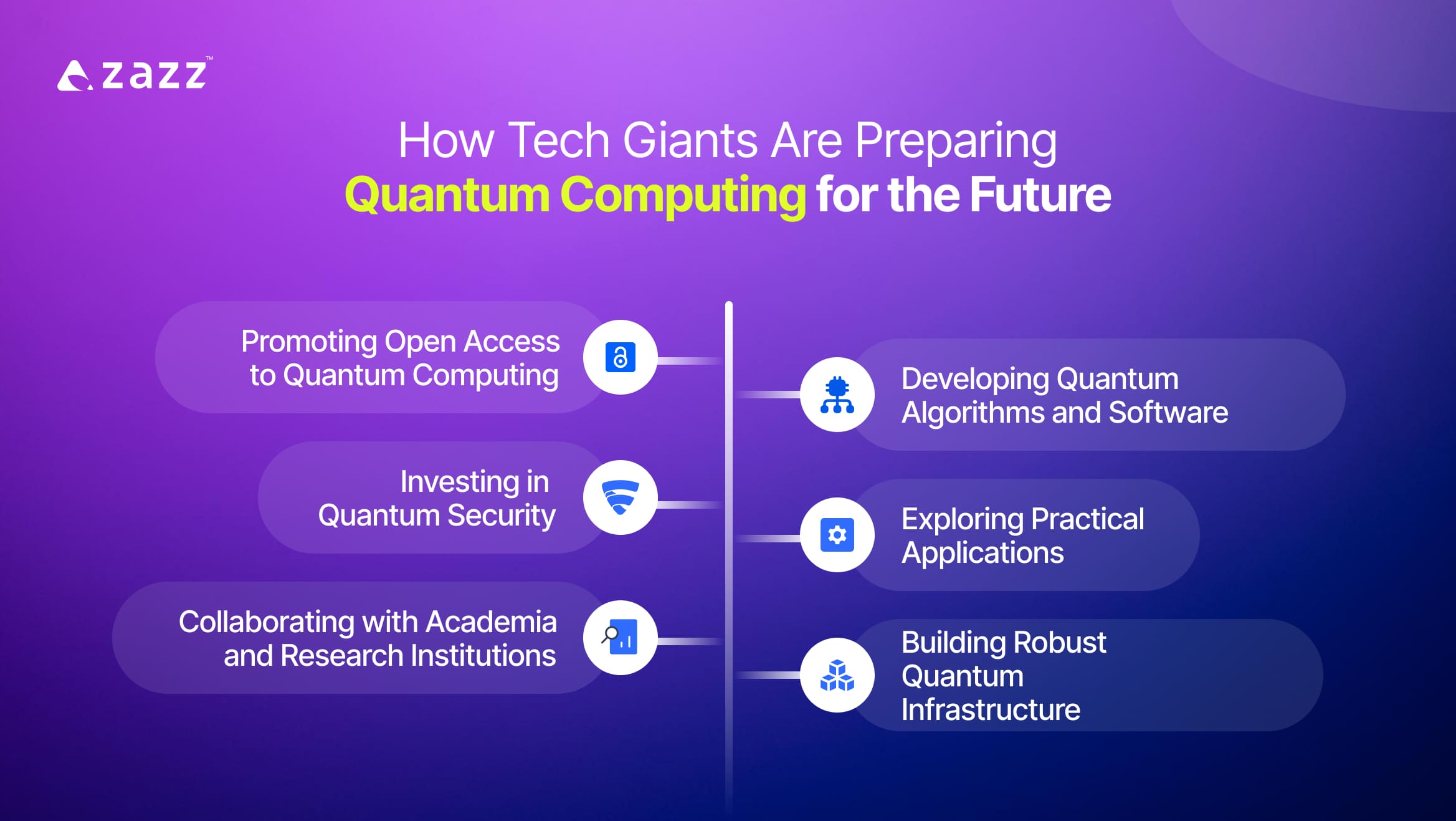
The potential of mobile apps is staggering in today’s time and age. Think of a world where vast datasets of information can be processed in the blink of an eye – simplifying, improving and increasing the intelligence of how we perform everyday tasks- That is quantum computing! this isn’t a daydream anymore! What was once confined to research labs alone is now making waves across industries, and mobile app development isn’t left behind. According to The Quantum Insider, quantum computing will contribute over $1 trillion to the global economy between 2025 and 2035. Such statistics support the irreplaceable impact of quantum computing, which is poised to be nothing but revolutionary.
But you may ask, “What does this mean for app developers and businesses?” Well, it’s not just an upgrade; it’s a significant shift in how applications are built and function. Developers who use quantum app development services today are not just keeping pace; they’re positioning themselves as leaders in a rapidly evolving world.
This blog will explore how quantum computing is set to transform mobile applications, the challenges that come with this new technology, and the strategic steps businesses can take to prepare for this exciting future.
What is Quantum App Development?

Quantum app development involves designing applications that use quantum algorithms and qubits instead of classical bits. This shift allows quantum applications to handle complex computations, making tasks like cryptography, AI, and large-scale simulations faster and more efficient.
So, at its essence, quantum computing leverages the principles of quantum mechanics to revolutionize how we process information. Unlike classical computing, which relies on bits as the basic data unit (represented as 0s and 1s), quantum computing uses qubits.
Let us break this down further for better understanding:
- These qubits can exist simultaneously in multiple states due to a superposition phenomenon.
- This unique ability allows quantum computers to perform numerous calculations simultaneously, significantly enhancing their processing power.
- Simultaneously, qubits can be entangled, meaning the state of one qubit can depend on the state of another, no matter the distance between them.
- This interconnectedness enables quantum algorithms to solve complex problems with extraordinary efficiency.
Thus, in practical terms, for mobile app developers, this translates into new quantum app development solutions that can tackle challenges once considered unsolvable.
Related reading: How to Choose Mobile App Development Technology Stack
Quantum Computing for Developing Mobile Applications
The impact of quantum computing on the mobile app industry is far-reaching. Here’s how it affects the key avenues of mobile application development:
1. Performance at an Unprecedented Scale
One of quantum computing’s most significant advantages is its ability to perform parallel computations, accelerating app performance to previously thought impossible levels. Traditional computers process data sequentially, which can be a bottleneck, especially for applications that handle large amounts of information.
For instance, consider an eCommerce app developmnet that needs to analyze user behavior and inventory data in real-time. With quantum algorithms, these apps can quickly search through vast, unstructured databases—such as analyzing millions of product combinations to offer tailored recommendations. This speed enhances user experience and empowers businesses to respond dynamically to market trends.
2. Enhanced AI and Machine Learning
Quantum computing also revolutionizes artificial intelligence and machine learning by dramatically speeding up the training of models. In a conventional setting, training a machine learning model to recognize patterns in user behavior can take hours or even days. However, quantum computing makes this process significantly faster, allowing mobile apps to adapt in real-time.
For example, a travel booking app could utilize quantum algorithms to analyze user preferences and past behavior to provide hyper-personalized travel suggestions. Imagine booking a vacation where the app suggests destinations and customizes packages based on your previous choices and current trends—all in seconds.
3. Unbreakable Security
As concerns over data breaches and cybersecurity continue to rise, quantum computing brings a new level of security to quantum application development. Techniques like Quantum Key Distribution (QKD) leverage the principles of quantum mechanics to create virtually unbreakable encryption keys. Unlike traditional encryption methods, which can be compromised over time as computing power increases, QKD ensures that any attempt to intercept the key would alter its state, alerting the sender and recipient.
For example, a Fintech app using quantum encryption would make it nearly impossible for hackers to access sensitive financial information, providing users with safety and trust.
Related reading: Guide to Mobile App Backend Development
Challenges and Solutions in Quantum Computing

The shift to quantum app development services is not without challenges. In fact,
1. Infrastructure Costs
Challenge: Quantum computing requires specialized hardware and infrastructure not readily available in typical data centers. Organizations must invest in cryogenic, quantum processors, and sophisticated control systems to develop quantum-compatible applications. This substantial investment demands careful consideration of the return on investment (ROI), as businesses must evaluate whether the performance gains justify the costs associated with setting up and maintaining such advanced technology.
Solution: Organizations can consider cloud-based quantum computing services to mitigate these costs. These services provide access to quantum resources without the need for significant upfront investment in hardware. This approach allows businesses to experiment and develop applications while controlling expenses.
2. Developer Skills Gap
Challenge: The skill set required for quantum application development is still in the niche, creating a significant barrier for many organizations. While universities are increasingly rolling out courses on quantum computing, the existing developer pool lacks the necessary expertise in quantum algorithms and the principles of quantum mechanics. Developers must learn how to write quantum code and integrate these quantum solutions with classical systems—a complex task that requires a deep understanding of both sides to ensure compatibility and efficiency.
Solution: Organizations can address this skills gap by investing in training programs and workshops for existing staff and collaborating with educational institutions to create internships and mentoring programs that cultivate new talent in quantum computing.
3. Quantum-Classical Integration
Currently, most applications rely on classical computing systems, and a full transition to quantum computing won’t happen overnight. As organizations develop quantum applications, they need solutions that work seamlessly in hybrid environments where both quantum and classical systems coexist. This integration is crucial because it allows companies to leverage existing infrastructure while gradually adopting quantum technologies. Companies should begin with small-scale quantum pilots to test and refine their approaches before committing to full-scale implementation.
Solution: Investing in quantum app development services early on will be crucial for businesses looking to stay competitive in an evolving technological landscape. By partnering with specialized quantum computing firms, organizations can access the necessary expertise and resources to address infrastructure and skill gap challenges. This proactive approach facilitates a smoother transition to quantum technologies and positions companies as leaders in their respective industries.
Role of Quantum Computing in Mobile App Development
Quantum computing’s role is not just supplementary; it’s transformational. Consider industries like healthcare, finance, and logistics. Mobile apps in these fields often deal with massive datasets and complex calculations. Hence, quantum computing is proving to be prodigious to the industry and can help in:
- Real-time analytics: Imagine analyzing data instantly, allowing for quicker and more informed decisions. Quantum algorithms can do just that! In healthcare and finance, for instance, quantum computing processes vast amounts of data rapidly, providing real-time insights that traditional systems can struggle to deliver.
- Predictive insights: Quantum-powered mobile apps can accurately predict customer behavior in the retail and consumer sectors. This is possible because quantum algorithms analyze multiple variables simultaneously, yielding insights that classical computing simply can’t match.
- Enhanced Machine Learning: Quantum computing takes machine learning to the next level by efficiently processing large datasets. Advanced algorithms, like Quantum Support Vector Machines (QSVM) and Quantum k-Means, harness quantum parallelism to improve classification and clustering tasks, making them faster and more effective than their classical counterparts.
- Breaking the Limits of Classical Computing: Integrating quantum technology into mobile apps allows developers to create more sophisticated solutions. Traditional computing has limitations, especially when dealing with complex datasets or advanced algorithms. Quantum computing breaks through these barriers by enabling simultaneous calculations across numerous possibilities, resulting in faster and more accurate outcomes.
- The Imperative for Developers: Adopting quantum app development services is quickly becoming a must-have strategy for mobile app developers. As more industries recognize the incredible benefits of quantum computing, those who embrace this technology will gain a competitive edge and help shape the future of mobile applications.
Quantum technology will enable more complex mobile applications, pushing boundaries that classical computing cannot approach. For developers, leveraging quantum app development services is no longer an option—it’s an eventuality!
Related reading: 5G Revolution: Impact and Evolution in Mobile App Development
Understanding the Impact of Quantum Computing

As developers begin to harness advanced technologies, the potential for innovation and efficiency becomes unparalleled. The considerations listed below in quantum mobile applications can potentially redefine how industries operate and interact with consumers. Have a look:
1. Exponential Speed
With quantum computing, apps will run processes in parallel rather than sequentially, cutting down runtime dramatically. For example, mobile apps for simulations or gaming will operate with near-instant feedback loops, improving user experience.
2. Data-Centric Mobile Apps
Data-heavy applications such as those used in fintech and eCommerce development will thrive with quantum computing’s ability to manage complex data rapidly. Apps can personalize content and offers in real time, improving conversion rates and user engagement.
3. Smart Cities and IoT
Quantum computing will accelerate the growth of smart cities by processing enormous IoT data generated by sensors. This will open new avenues for mobile apps focusing on urban infrastructure management, transportation, and sustainability.
4. Enhanced Security Features
Quantum computing introduces advanced cryptographic techniques that can significantly enhance the security of mobile applications. By utilizing QKD, developers can ensure that data transmission is nearly impervious to hacking attempts. This is particularly crucial for applications handling sensitive information, such as banking or personal health data, where traditional encryption methods may fall short against emerging cyber threats.
5. Optimized Resource Management
In sectors like logistics and supply chain management, quantum computing can optimize resource allocation in real time. Mobile apps can leverage quantum algorithms to simultaneously analyze factors such as inventory levels, shipping routes, and demand forecasts. This capability allows businesses to minimize costs and improve efficiency, ensuring that resources are allocated where they are most needed
What to Expect in the Future of Quantum Computing
Quantum computing is anticipated to shift from specialized academic pursuits to transformative industry applications in the near future. Soon, large-scale mobile applications may begin harnessing quantum algorithms, especially in fields such as finance and logistics. The technology promises to reshape entire sectors, bringing new efficiencies, faster processing, and insights that were previously unimaginable.
As more industries adopt quantum-powered solutions, its economic impact is set to grow, alongside these advancements. Have a look:
1. Enhanced Machine Learning Capabilities
With quantum algorithms, machine learning models can be trained at speeds that dwarf current capabilities. This acceleration will lead to more robust AI applications within mobile apps, allowing for improved user experiences through smarter recommendations, advanced personalization, and real-time data analysis. For example, eCommerce platforms could instantly adapt their offerings based on user behavior patterns analyzed through quantum-enhanced machine learning.
2. Revolutionary Optimization Algorithms
Quantum computing excels at solving optimization problems, which are prevalent in logistics, supply chain management, and resource allocation. Mobile apps in these sectors will benefit from real-time optimization capabilities, allowing businesses to make data-driven decisions swiftly. Imagine a logistics app that dynamically adjust delivery routes based on real-time traffic data and weather conditions, optimizing efficiency and reducing costs.
3. Breakthroughs in Cryptography and Security
As security becomes increasingly paramount in mobile applications, quantum computing offers advanced cryptographic techniques that can significantly enhance data protection. QKD ensures secure communication channels that are virtually impervious to interception. This is particularly crucial for finance and healthcare apps handling sensitive information.
4. Seamless Integration with Cloud Computing
Quantum app development will likely integrate seamlessly with cloud services, providing developers access to powerful quantum resources without needing extensive hardware investments. Platforms like IBM Quantum Experience and Microsoft Azure Quantum will enable developers to build and test quantum applications in a cloud environment, fostering innovation while reducing barriers to entry.
5. Innovative User Interfaces and Experiences
The processing power of quantum computing will allow for the developing more complex user interfaces that can handle richer data inputs without lag. Mobile apps could incorporate features like augmented reality (AR) or virtual reality (VR) with enhanced responsiveness and interactivity, creating immersive experiences that engage users on a deeper level.
6. Sustainable Development Practices
Quantum computing has the potential to improve energy efficiency in mobile applications significantly. Developers can create more sustainable apps that contribute positively to environmental goals by optimizing resource usage and minimizing computational waste. This focus on sustainability will resonate with consumers who are increasingly concerned about their ecological footprint.
7. Collaborative Ecosystems
We can expect a surge in collaborative ecosystems among tech companies, research institutions, and startups focused on quantum app development. This collaboration will drive innovation and knowledge sharing, leading to faster advancements in technology and application capabilities.
Related reading: What is the time required for launching a mobile app?
How Tech Giants Are Preparing Quantum Computing for the Future

As quantum computing moves from theory to practice, major technology companies invest heavily in its development to stay ahead in the competitive landscape. Here’s how these tech giants are preparing for a quantum-enabled future:
1. Building Robust Quantum Infrastructure
Tech giants like IBM, Google, and Microsoft are establishing dedicated quantum computing infrastructures. For example, IBM’s Quantum System One is a commercial quantum computer designed for stability and reliability, allowing businesses to experiment with quantum applications. Google’s Sycamore processor has demonstrated quantum supremacy, proving that quantum systems can outperform classical computers in specific tasks. These investments in hardware aim to create a solid foundation for future quantum applications.
2. Developing Quantum Algorithms and Software
To fully leverage quantum hardware, companies are focused on creating algorithms that can run efficiently on quantum computers. Frameworks like TensorFlow Quantum and Qiskit, respectively, allow developers to build quantum applications more easily. These software tools are essential for researchers and developers looking to create algorithms that can solve complex problems, from cryptography to optimization.
3. Collaborating with Academia and Research Institutions
Tech giants collaborate with universities and research institutions to accelerate quantum research and development. Partnerships with academic leaders allow companies to tap into cutting-edge research, fostering innovation. For instance, IBM has established the IBM Quantum Education Program to train the next generation of quantum scientists and engineers. Such initiatives enhance knowledge sharing and cultivate a skilled workforce prepared for the quantum era.
4. Exploring Practical Applications
Leading tech companies are exploring practical applications of quantum computing across various industries. For example, Microsoft is investigating how quantum computing can optimize supply chain logistics, while D-Wave Systems focuses on applications in machine learning and artificial intelligence. By identifying specific use cases, these companies aim to demonstrate the tangible benefits of quantum technology, helping to drive adoption in real-world scenarios.
5. Investing in Quantum Security
With the advent of quantum computing comes the potential for new security challenges, particularly in encryption. Companies like IBM and Google actively research quantum-resistant cryptography to safeguard sensitive information against future quantum threats. By developing security protocols that can withstand quantum attacks, these tech giants are protecting their assets and ensuring trust in quantum technologies.
6. Promoting Open Access to Quantum Computing
Many tech firms are making quantum computing more accessible through cloud platforms. IBM’s Quantum Experience allows users to access their quantum computers via the cloud, enabling developers, researchers, and enthusiasts to experiment without significant investment. This open-access approach fosters a community of innovators who can contribute to advancing quantum technology.
Additionally, these technology companies have already started incorporating quantum application development in real-world scenarios through:
- IBM’s Quantum Computing Program
- Google’s Quantum AI Division and
- Microsoft Azure Quantum (amid many more)
Thus, this makes the future clearer than it could be– organizations investing in quantum tech today are positioning themselves to lead the mobile app development industry tomorrow.
Related reading: Top 5 Mobile App Development Trends
Wrapping Up!
Quantum computing is revolutionizing mobile app development, offering unprecedented speed, security, and scalability. With industry giants like IBM and Google leading the charge in quantum innovation, it’s not a question of– whether quantum computing will impact mobile app development but when. Companies that adopt quantum app development services early will enhance their operational efficiencies and position themselves at the forefront of the next wave of technological innovation.At Zazz, we pride ourselves on being a world-class, industry-led mobile app development company in the US. Our expertise in integrating cutting-edge technologies allows us to provide unparalleled quantum app development services tailored to your business needs. Contact us today to harness the power of quantum technology and lead the way in mobile app innovation.
Frequently Asked Questions
Quantum app development utilizes quantum algorithms and computing capabilities to create advanced, efficient, and secure mobile applications that outperform traditional methods.
Quantum computing will enhance mobile app performance by enabling parallel processing, allowing for real-time analytics and significantly faster data handling than classical systems.
Key industries poised to gain from quantum mobile applications include healthcare, finance, logistics, and smart cities, where complex data processing and optimization are critical.
Quantum encryption techniques provide robust security measures, making mobile apps highly resistant to hacking attempts and ensuring data integrity through advanced cryptographic methods.
Challenges include high infrastructure costs, the necessity for specialized developer skills, and the complexity of merging quantum systems with existing classical architectures.
Quantum cloud computing allows developers to access quantum resources via the cloud, eliminating the need for costly hardware investments while enabling experimentation with quantum algorithms.
Recent Articles
Table of Content 1. Data Engineer vs. Data Scientist: Understanding...
Table of Content 1. What is the Carnival in Brazil?...
Table of Content 1. What is IT Staff Augmentation? 2....












